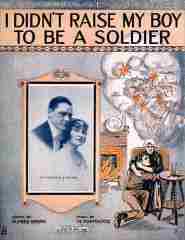Did you know that the Carter administration spent $500 million dollars to spread Islamic fundamentalism in Central Asia and thereby to destabilize the Soviet Union. Scary stuff. Essentially, what this means is that this war on terrorism, in case you didn’t know it, is a sick, sick joke against all of us. Not only that, it was paid for with your hard-earned tax dollars. From The Colder War by John Pilger:
Brzezinski not long ago revealed that on July 3, 1979, unknown to the American public and Congress, President Jimmy Carter secretly authorised $500 million to create an international terrorist movement that would spread Islamic fundamentalism in Central Asia and “destabilise” the Soviet Union.
The CIA called this Operation Cyclone and in the following years poured $4 billion into setting up Islamic training schools in Pakistan (Taliban means “student”).
Young zealots were sent to the CIA’s spy training camp in Virginia, where future members of al-Qaeda were taught “sabotage skills” – terrorism. Others were recruited at an Islamic school in Brooklyn, New York, within sight of the fated Twin Towers.
In Pakistan, they were directed by British MI6 officers and trained by the SAS.
The result, quipped Brzezinski, was “a few stirred up Muslims” – meaning the Taliban.
At that time, the late 1970s, the American goal was to overthrow Afghanistan’s first progressive, secular government, which had granted equal rights to women, established health care and literacy programmes and set out to break feudalism.
When the Taliban seized power in 1996, they hanged the former president from a lamp-post in Kabul. His body was still a public spectacle when Clinton administration officials and oil company executives were entertaining Taliban leaders in Washington and Houston, Texas.
The Wall Street Journal declared: “The Taliban are the players most capable of achieving peace. Moreover, they were crucial to secure the country as a prime trans-shipment route for the export of Central Asia’s vast oil, gas and other natural resources.”
From Oil And The Taliban By Edward W. Miller:
“Seeing this destruction and lawlessness,” Hashemi added, “a group of students called the Taliban… (Taliban means student) …started a movement called the Movement of Students in Kandahar after a warlord abducted two minor girls and violated them.” Their teacher, with only 53 students and 16 guns, freed the two girls, hanged the warlord and some of his people. BBC quoted the story… which lead to many students joining the Movement and disarming other warlords. At the time the Ambassador gave this lecture, he said the Taliban controlled 95 percent of the country. “Only a bunch of these warlords are remaining in the northern corridor… The Taliban unified the country, established a single administration, disarmed some militant factions, and eradicated opium cultivation.”
“In 1998, they (the US) sent cruise missiles into Afghanistan… to kill Osama bin Laden… 75 cruise missiles… missed and killed 19 students and they never apologized.” The Ambassador said his country had offered to punish Osama bin Laden if the US gave proof of his embassy bombings. The US refused. They offered to try Osama in their courts. The US refused. Next offered, Hashemi said, was an international monitoring group in Afghanistan to watch bin Laden, also refused. When the US refused bin Laden’s trial in another country, the Ambassador decided the US was “looking for a boogey man,” quoting Gorbachev who said as he broke up the Soviet Union that “he was going to do the worst thing to the United States… to remove their enemy.” Hashemi said Osama bin Laden had been in Afghanistan 17 years before the Taliban existed, fighting the Soviets. “The Mujahadeen were then called “freedom fighters” by Ronald Reagan and Dick Cheney, and when the Soviet Union fragmented and such people were not needed anymore, they were transformed into terrorists.”
